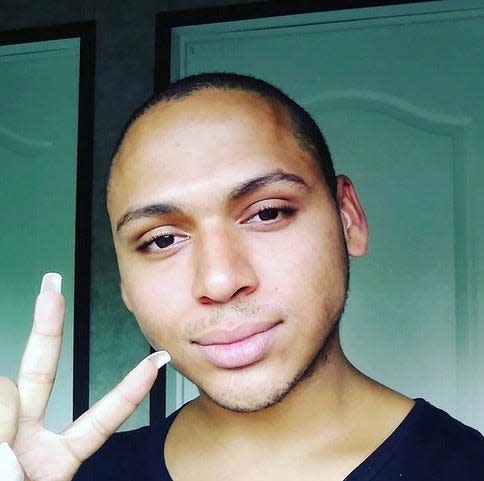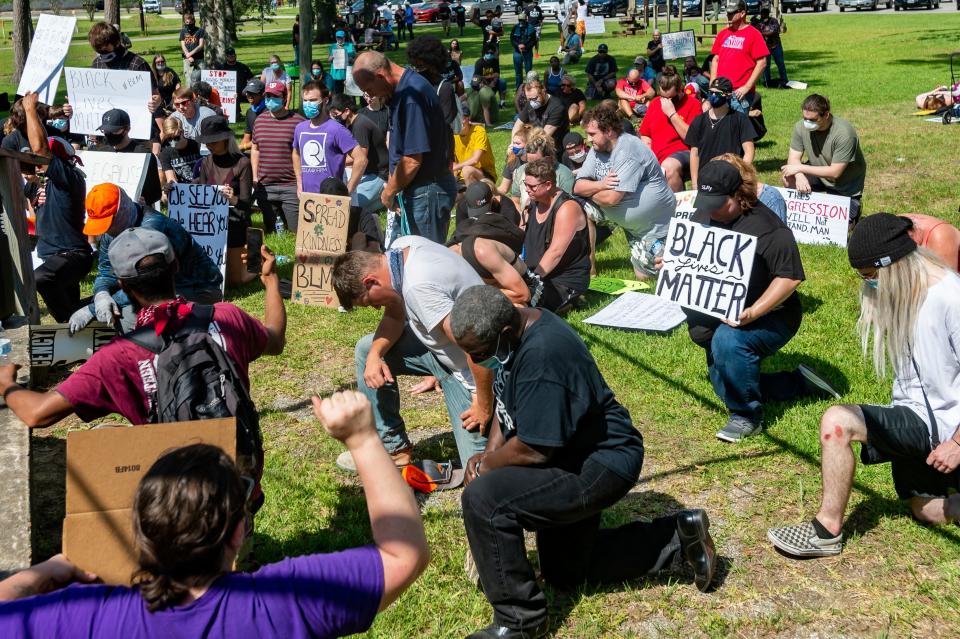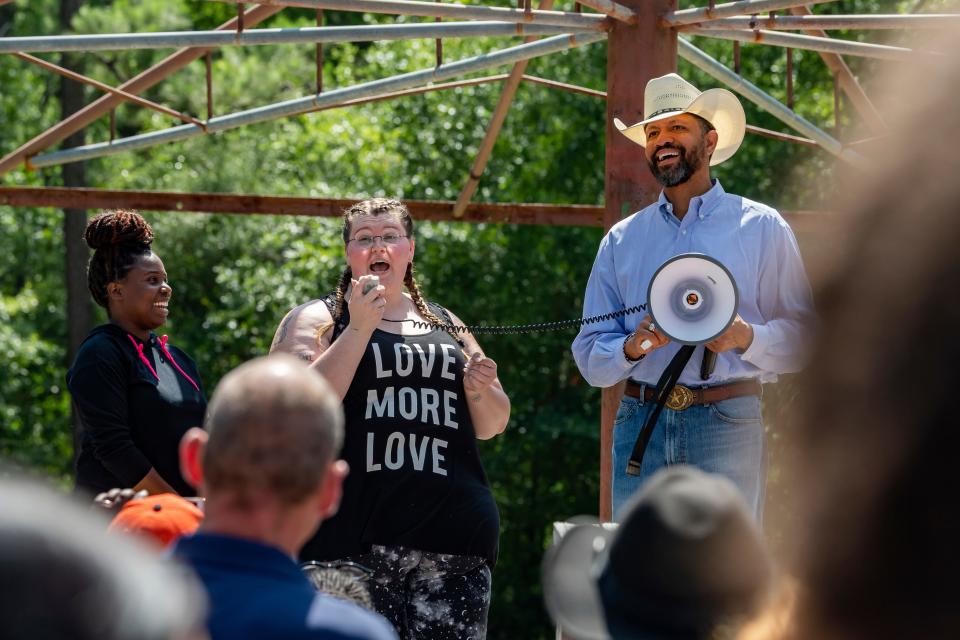Finding love, tolerance at Black Lives Matter protest in 'most hate-filled town' in Texas
As DeVon Noe rode in the truck on the way to the Black Lives Matter protest, he felt queasy. He thought about the 37 Facebook messages he saw when he woke up.
Most were discouraging, even threatening. One told him if he showed, he’d get beat up. Others were positive — “You got this, I love you,” they said.
Noe is a gay, Black man living in Vidor, Texas, a place once described by Texas Monthly as the state’s “most hate-filled town.”
Vidor, an east Texas town of about 10,000, where many residents work in the refining complexes in nearby Beaumont, is mostly known by outsiders for its history as a haven for the Ku Klux Klan. When a federal judge ordered a housing project desegregated in 1993, the Klan rallied and demanded the entire town be white.
It was known for being a “sundown town,” when the few Black people who lived there knew they weren’t safe if they were out after dark. Most Black residents in Beaumont were afraid to even stop in Vidor to get gas or change a tire.

But Vidor has been Noe’s home for nearly all his 24 years, and he knows there’s more to it.
When Noe was deciding whether to go to the June 6 protest, he thought about his first day of elementary school in Vidor.
In This Together: In sickness, health and fighting racism: Attending a peaceful BLM protest with my husband
“You’re a n----- and no one wants you here,” someone said to him at recess that day, a group of students forming around him.
That was the day he met his friend Josh, who pulled him away from the group. Josh helped him write a speech for the protest.
He thought about when he was in junior high and three students cornered him in the bathroom during gym class, shoved him into a stall and spit on him while yelling racial slurs. He thought about how he started wearing makeup in high school to cover the bruises so his family wouldn’t worry.
As his friend Caleb pulled the truck up to the park, Noe saw at least a hundred people already gathered. Most were white, but there were Black people attending, too. Most were young, but there was also a group of middle-aged white women wearing T-shirts with sayings such as “I can’t breathe.”
Noe saw the faces of his friends, his chosen family. As he stepped onto the stage, he felt like he wasn’t alone.

When he looked out into the crowd, he saw Caleb standing dead center. He and Noe were wearing the same teal shorts they’d bought at Walmart earlier in the day. Noe bought the shorts because they matched his dyed hair; Caleb bought them in case they were attacked, so Noe could still find him if everyone had to hit the ground.
Some friends skipped the protest, but Noe still remembered how they had shown him love through the years.
When he thinks about his friend Lindsay, he thinks about how she took a punch to the face for him to break up a fight when they were in high school.
When he thinks about his friend Brandi, he thinks about how they used to make chicken alfredo in their underwear together and how they have matching tattoos of “Ohana” — Hawaiian for family — because they decided they were more than just friends.
In This Together: A stubborn stain, a selfless act, a wrenching discovery
He thinks about his old teachers: Mrs. Nelson, who never allowed Confederate flags in the classroom when students tried to bring them in; Mrs. Berry, who was one of the first people Noe told he was gay; Mrs. Griffin, whom he once called in the middle of the night when he had thoughts of killing himself.
While Noe was lost in thought, 23-year-old Maddy Malone, who helped organize the protest, spoke to the crowd about how her generation is going to be the one to break the cycle of racism. Then, she handed the microphone to Noe.
His stomach churned. He could barely remember how to speak at all, let alone the speech he’d prepared. I guess I’m going to wing it, he thought.
“Some of you might know me as Vidor’s resident gay, Black guy,” Noe said. “Yeah, that’s me.”
Noe told the crowd how he’s had bottles thrown at his head and cars jumping the curb to try and hit him while he walks through town. But that doesn’t mean the town is doomed to be like this forever.

“I know Vidor is a very damn good place,” he said.
As Noe stepped down from the stage, he felt hopeful. Maybe this protest would change the town’s reputation just a little. He doesn’t like how the media usually portrays Vidor.
When people Google the town, they just get the ugly history. They don’t see the people who help Noe pay for groceries when he’s struggling, or the people who offer him rides so he doesn’t have to face the danger of walking in town alone. They don’t learn about his friends and family, who have saved his life.
In This Together: ‘We got you’: A deputy worried about walking with protesters. Two women escorted him.
Vidor is still filled with hatred and ignorance, but it’s also filled with love.
Noe believes in what he calls “The Vidor curse” — if you move to town, you’re there to stay. You can try to leave, but you’ll always come back.
As much as it’s a curse, Noe thinks it’s also a comfort, a constant. He doesn’t want to leave. Vidor is where his friends and family are, so it’s where his heart is.
“I love this town. I’ll probably die in this town,” he said. “And if not, I’ll be back somehow.”
Support journalism: Stories like this are possible because of our subscribers
This article originally appeared on USA TODAY: He'd felt hate, but love led him to speak at Black Lives Matter rally

